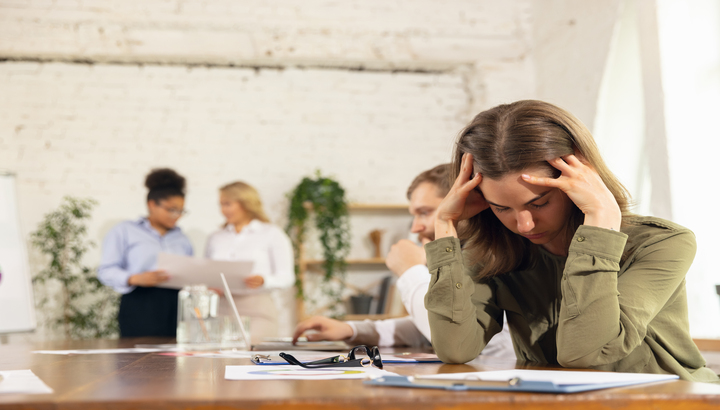
Social anxiety disorder, also known as social phobia, is an anxiety disorder that some people suffer from and it causes them extreme fear in social settings. Those suffering from this disorder often have trouble meeting new people, talking to people, and participating in social gatherings. They fear that they will be assessed and judged by others. These people may know that there is no rationale or reasonableness behind their fears, but they may not be able to overcome them.
Shyness is not the same as social anxiety. You experience shyness, usually for a short period of time. Besides, shyness often doesn’t cause any disruption to your life. On the other hand, social anxiety is not only persistent but also debilitating. It can affect your ability to do work, attend school, or develop close relationships with anyone outside your family. Symptoms of social anxiety disorder often start to show up around age 13 or so.
Symptoms
If you suffer from this anxiety disorder, social interaction often causes the following symptoms:
Physical Symptoms
- Blushing
- Nausea
- Excessive sweating
- trembling or shaking
- Difficulty speaking
- Lightheadedness or dizziness
- A fast heartbeat
Psychological Symptoms
- Intense worry about social situations
- Worrying for days, if not weeks, before an event
- Avoiding social situations
- Worrying too much about embarrassing yourself in social situations
- Worrying about other people noticing your stress or nervousness
- Using alcohol before facing a social situation
- Missing work/school
It is normal to feel anxious at times. However, if you have social phobia, you may constantly fear that you will be humiliated or judged by others, and you try your best to avoid all social situations, including asking questions, shopping, job interviews, using public restrooms, eating in public, or talking on the phone.
Social anxiety symptoms may not show up in all situations. Furthermore, you can experience selective or limited anxiety. If you have severe social phobia, symptoms may occur in all social settings.
Stress and Anxiety Symptoms
You may experience stress and anxiety while at work, prior to taking a test, or before making a very important decision. Stress and anxiety are emotional responses. However, stress is generally caused by an external trigger. The difference between the two is that you experience stress in response to the threat posed by a situation, while your reaction to the stress causes anxiety. Anxiety may be defined as persistent, excessive worry that will not go away, even in the absence of a stressor. Often, it worsens over time. Besides, the symptoms often impact your daily activities: performance at your workplace, your relationships with others, or schoolwork, in the case of children.
Symptoms of Stress
- Dizziness or headache
- Tension or pain in muscles
- Stomach upset
- Faster heartbeat or chest pain
Symptoms of Anxiety
- Feeling restless, nervous, or tense
- A feeling of impending danger/panic
- Increased heart rate
- Sweating
- Trembling
- Feeling weak or tired
- Trouble concentrating
- Irritability
- Sleep disturbances
Symptoms of Anxiety and Depression
Depending on your gender, age, socialization, cultural background, and personal differences that are unique to you, anxiety and depression can take different forms.
- Symptoms of anxiety in men include irritability, anger, and reckless behaviour.
- Women experience symptoms of depression, including feelings of guilt, worthlessness, and persistent fatigue.
- In children as well as young adults, symptoms vary from clinginess and separation anxiety to defiant behaviour and problems at school.
- When it comes to older adults and senior citizens, anxiety and depression symptoms often include memory loss, loss of interest in hobbies, and substance abuse.
Symptoms of an Anxiety Attack
Symptoms of an anxiety attack vary from one person to another and from one situation to another. Anxiety attack symptoms in females and males can make them feel extremely uncomfortable and it becomes difficult for them to function normally. Fortunately, it is highly treatable with professional help and self-care.
Anxiety attack symptoms include:
- Lightheadedness
- Sweating
- Trembling, tremors, or shaking
- Nausea
- Numbness and tingling in both hands and feet
- Irritability
- Heart palpitations
- Shortness of breath
- Chest pain
- Intense feelings of doom, panic, and fear
Causes and Risk Factors
Social anxiety disorder is rarely caused by a single reason. The factors that contribute to the development of the disorder include brain chemistry, trauma, and genetics. In general, it starts in adolescence or early adulthood. Experiencing or witnessing traumatic situations in the past and parenting styles are also contributory factors. The chances of men and women developing this disorder are the same. Besides, it is observed to co-occur with other mental health conditions such as depression, obsessive-compulsive disorder, or other anxiety disorders.
Treatment
If you landed on this page following a Google search using the keywords "social anxiety disorder treatment in Cochin," you are at the right place. SoftMind, a leading provider of evidence-based non-invasive psychotherapies in Cochin, can help you. There is evidence to prove that psychotherapies, especially cognitive behaviour therapy and clinical hypnotherapy, can reduce the severity of stress, anxiety, and phobia.
At SoftMinds, the best centre for psychotherapy treatments in Cochin, competent and highly trained mental health professionals with many years of experience deliver clinically recommended therapies. They will help you to understand how you think and react to situations and teach you techniques to cope with or manage your phobia.
We do not recommend any medication while treating patients who experience mild to moderate psychological problems. However, in specific cases, a combination approach (medication + psychotherapy) may be more helpful.